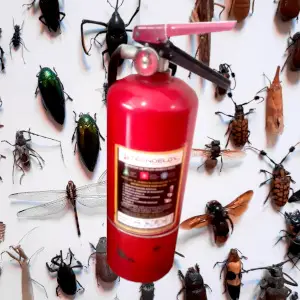Insects can be a big nuisance when they get into a home or office. There are ways of killing and removing them that do not involve calling the exterminator.
You can use fly swatters, containers, even home cleaning chemicals to remove them.
Can a fire extinguisher kill insects? The quick answer is yes, a CO2 fire extinguisher will kill some insects, but it’s not the most efficient way to do it.
Will a Fire Extinguisher Kill Bees?
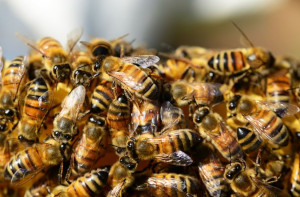
If you own property, finding a beehive or wasp nest is not uncommon. But what to do about them? Calling a qualified exterminator that can handle these pests is the best option. Or, you could try spraying them with pesticides.
However, using a fire extinguisher may also work to get rid of them. An ordinary non-toxic CO2 fire extinguisher can suffocate bees when sprayed up close for an extended period. Fire extinguisher powder is not toxic to humans. The CO2 spray is cold, which will slow down or stun the bees. But if they attack you, the best option is to just run away!
Will a Fire Extinguisher Kill Wasps?
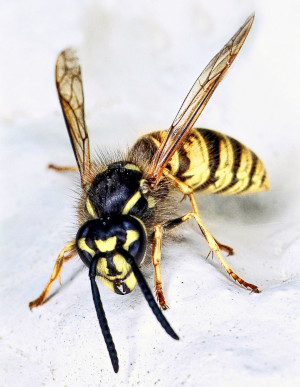
Wasps can cause very painful stings to humans if they are provoked. So, being able to removing them safely from a premises is something most people with structures on their property should know how to do.
Wasps breathe oxygen just like other insects. So, if they are sprayed with a CO2 fire extinguisher, they may be suffocated, causing them to die. The force of the spray from the extinguisher can also hurt wasps if sprayed close enough. The compressed gas spray is also very cold in some types of fire extinguishers which can cause the wasps to slow down as they lose body temperature.
So, the answer is that fire extinguishers can kill wasps under certain circumstances. But doing so risks your safety in a big way — it’s best to just call an exterminator!
Will a Fire Extinguisher Kill Bed Bugs?
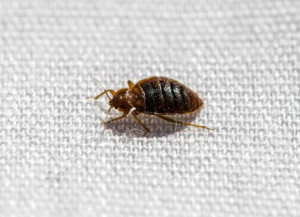
Bed bugs are very disturbing to have in one’s home. They hide in sheets and mattress cervices and sneak out at night to harm the human inhabitants nearby. Fortunately there are ways to remove them safely.
Using cyronite, a form of carbon dioxide freezing can kill bed bugs and not leave toxic residues.
Since bed bugs are so small and do not hold well onto surfaces, spraying them with a CO2 fire extinguisher will likely only scatter them.
You’re better off using something like Harris Bed Bug powder to kill bed bugs.
Bed bugs are such a nuisance and so difficult to completely get rid of, it is best to call a specialized exterminator to do it instead of using a fire extinguisher.
Will a Fire Extinguisher Kill Spiders?
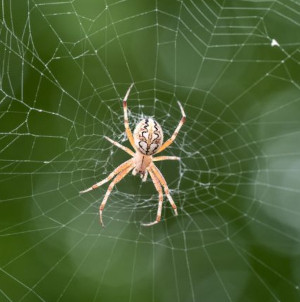
Like other insects, spiders breathe oxygen and have delicate bodies which can be harmed with CO2. So, yes a fire extinguisher can kill a large spider if it is sprayed up close.
However, like other insects, all this may do is cause the spider to scatter away, rather than kill it. This will leave you with a spider that is still alive and now hidden again from view.
There are better ways to kill or remove spiders including these spider-killing products (click on the links below to Amazon):
- Spider traps
- Cobweb dusters
- Natural indoor pest spray
- Spider, flea & tick insecticide
- Diatomaceous earth
As an Amazon Associate, SelectSafety earns commissions from qualifying purchases made through links in this post.
Calling a pest control service will definately work to remove spiders. Although, these services can be expensive. To have a pest service remove some spiders from your home could cost between $200-500.
Will a Fire Extinguisher Kill Cockroaches?
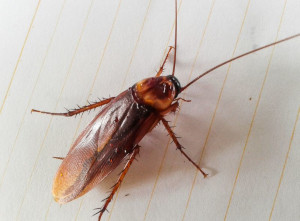
Probably not. Cockroaches are tough little critters. If a fire extinguisher cannot kill a bee or small insect, it probably will not kill a cockroach. To remove them. it is best to call an exterminator. Even stepping on cockroaches with your shoe may not be enough to kill them.
Other ways to kill and remove cockroaches from your home include:
- Borax powder
- Peppermint oil spray
- Silica powder (works for roaches and bed bugs)
- Diatomaceous earth
There are, as you can see here, other easy options for killing cockroaches that don’t involve spraying the contents of your very important fire extinguisher.
Better Ways To Kill Insects
Fire extinguishers are not made to kill insects, and there is probably not a fire extinguisher on the market strong enough to do so. A fire extinguisher sprayed directly onto an insect may not be enough to kill it.
Home Insecticides
Ortho Home Defense Insect Killer – Kills Ants, Cockroaches, Spiders, Fleas and Ticks
Raid Multi Insect Killer – Kills Ants, Spiders, Roaches and Flies – Orange Breeze Scent
Other Approaches
- Hire a pest removal service
- Clean up your home or office of any food sources with soap and disinfectant.
- Spray insecticide
- Set insect traps
- Keep doors and windows shut to prevent insects from coming inside and nesting.
- Remove and wash clothes immediately after returning from being outdoors.
In Closing
Fire extinguishers are mainly designed to fight fires, and their contents are specifically made for such. So, if you have an insect infestation problem, either using a product designed to get rid of them, or calling your local pest exterminator rather than using a fire extinguisher is the best option.

